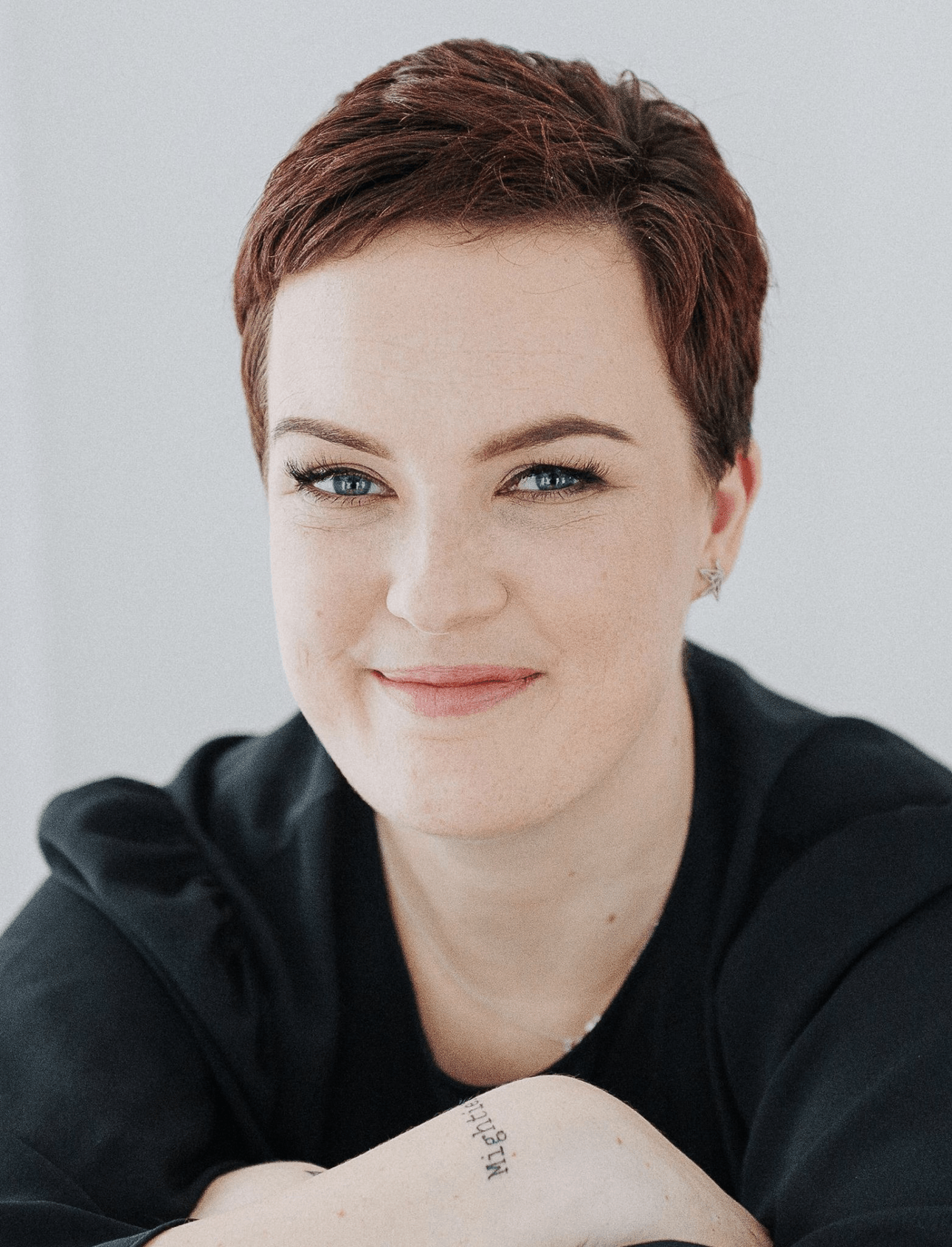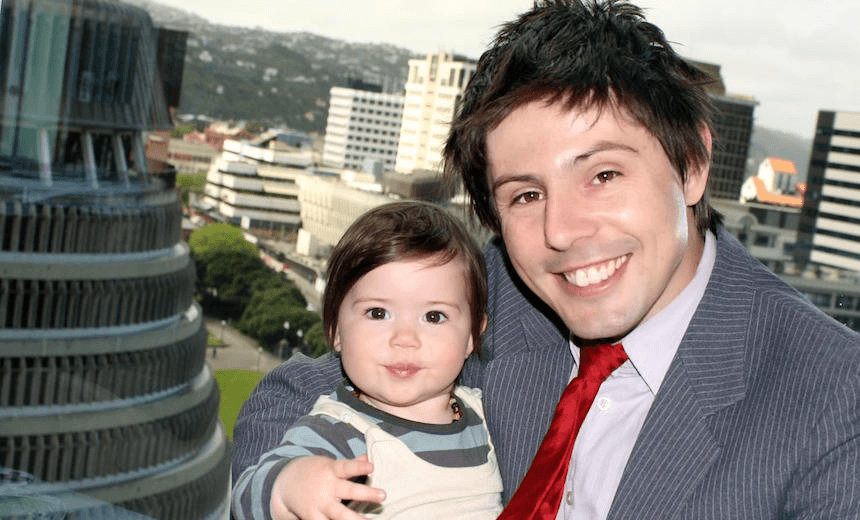Spinoff Parents editor Emily Writes sits down with a General Practitioner and asks all of the hard questions, from colic to reflux to tongue ties to bloody amber beads.
This is the second in a series of posts in which I ask health professionals questions about child health, crowd-sourced from you. Today’s interviewee is a lovely GP who is remaining anonymous so he can be as honest as possible with us. Read the first interview, with dentist and comedy writer Sam Smith, here – Emily Writes, Spinoff Parents editor
When should a parent see a GP for their child?
Honestly, whenever their gut feeling tells them they should. I’m not going to get all upset if you bring a well kid in to see me. It’s better to be safe than miss something serious because you don’t want to disturb the doctor with what you think is a silly question.
Have you got tips for parents for picking a GP?
Find someone you feel comfortable with. Some GPs will have more experience with kids than others, and some will have done extra papers in paediatric medicine. It can be hard though: I work in a fairly small community, so there’s not a huge amount of choice, and we usually all end up seeing each other’s patients anyway from time to time.
It feels like it’s really difficult to get a referral from a GP for specialist care of children – why is it so hard?
I think it really depends on the issue and the GP. Sometimes you’ll get parents asking for referral for tonsillectomy after two episodes of tonsillitis, or a paediatric referral for a month of constipation, and you know they’re not going to get anywhere near a clinic. I’m generally happy to discuss with parents about a referral onwards, but it’s got to be appropriate. DHBs have limited resources unfortunately, and sometimes you know you’ll get a letter back in a month saying ‘we’re not going to offer an appointment, do these things first, if there’s no change maybe we can see them in six months.’ So I like to try and manage expectations, and only refer when I’m sure specialist input is needed. I’ll also often ask paediatricians I know personally when a referral is going to be indicated.
That said, if you’re willing to go through the private system, pretty much anyone can get an appointment at the drop of a hat, so long as a private service is available. But there are no private paediatricians in our DHB, unfortunately, so even that’s not always possible though.
Some readers have said that their GP treats them differently as a first time parent – they feel they’re not taken seriously. Do you think that’s an issue? I sometimes felt like my husband was taken more seriously than me.
They’re probably right to an extent, and I reckon that’s really unfortunate. I remember being a first time parent, being anxious about everything slightly outside what I thought was normal, and that’s from someone with medical knowledge. It’s a really tough time full of uncertainty, and you’ve got a right to be taken seriously, so if you feel like you’ve been blown off, don’t be afraid to go and see another doctor.
Should parents immunise?
Oh god yes, 1,000 times yes. If only because when your kid cuts his foot on a rusty nail, we won’t need to send them to hospital to receive tetanus immunoglobulin, which is a massive pain in the arse for everyone involved. You hear opinions like ‘but these diseases aren’t around much anymore’, that’s because of immunisation, but kids do still die and get complications from these illnesses. An unimmunised kid was hospitalised with tetanus in Auckland a few years back, and almost died. His parents have since gone on a massive pro-immunisation campaign in the press. There’s a reason we immunise against these infections. When you get your kids immunised, you’re also protecting others they’re coming in contact with: newborn babies are particularly susceptible to illnesses like whooping cough, and it can often be fatal.
Why do you think there’s been such an increase in “woo” with parents? Do you despair when parents say they read a blog so they’re not going to give their child pamol because pamol sheds diseases and was created by Big Pamol to brainwash children into becoming lawyers?
Haha! I haven’t heard any pamol ones! You get the ‘immunisations are bad’ crowd. The link between the MMR vaccine and autism is one that still gets a lot of press, but it’s been thoroughly debunked, but there’s still an awful lot of misinformation around and people will listen to the loudest voices. It’s like when someone says there’s going to be an earthquake on this particular date because of the moon: of course there’s no evidence to prove it, but if the voice is loud enough, there are enough people happy to take it at face value.
Is Dr Google your least favourite doctor?
Dr Google gets a bit of a bad rap, but he’s not bad if you know where to look. Still, there’s a lot of bad information, and you can’t really replace a face to face consultation with chucking a few symptoms into a search engine. If you want to convince yourself you have cancer, though, it’s an excellent tool.
What’s the most common thing parents come to you with?
Probably respiratory tract infections, colds, ear infections, stomach bugs. Stuff you can’t do a huge amount about, and need to just wait out unfortunately.
Is it OK for a parent to get a second opinion? Do you mind?
Absolutely. We’ve usually got reasonably thick skin and won’t get too offended.
In House, everything is Lupus. At the GP is everything an ear infection for under-fives?
Mostly. Not quite though, I’m yet to think of a mechanism in which one could cause constipation.
What do you think is the biggest problem facing parents these days in terms of who you see in your waiting room?
There is a lot of information out there, and a lot of it conflicts, you never know what the right thing to do is. For example, sure, breast feeding is great and to be encouraged, but it’s not practical or possible for every mother to breast feed. Then there’s the decision to be made about what formula to use… There’s no easy answer, and whatever you do there’s going to be a blog or an expert who tells you what you’re doing is wrong. And don’t get me started on tongue ties…
Has a child ever bitten you?
Not any of my patients, but my own kids have! I’ve been hit, kicked and sworn at regularly though. My favourite patients are the ten year old boys who come in all staunch with a wart for burning off, then about five seconds in they jump up, run out of the room, and refuse to ever see me again.
Do you think tongue and lip ties are over diagnosed?
Oh good, you waited a question, then got me started on tongue ties!
I wanted to lull you into a false sense of security.
This is so contentious. I don’t think tongue and lip ties are necessarily over diagnosed, but I think the significance of them is probably overstated. And there’s a real danger that other problems might get missed because tongue ties are getting concentrated on so much. I used to be a paediatric registrar, and I remember being called to assess a newborn baby with a possible tongue tie who wasn’t latching. He also had a reasonably significant cleft palate that had been missed, which was the true cause of his problems. Snipping a tongue tie isn’t necessarily a completely benign procedure, and there’s no clear evidence that it does necessarily improve feeding or speech development in mild or moderate cases. But then, there are some GPs who will tell you the opposite and are happy to snip a tongue or lip ties, and I’ve heard some parents who feel it has improved feeding.
Do you have favourite kids and kids you’re just like OMG NOT THIS LITTLE ASSHOLE AGAIN?
Absolutely not, I love all of my patients equally!
What’s the best part of your job?
I work with a great team of GPs, nurses and administrative staff; knowing they always have my back is a great part of the job. And I have a great bunch of patients. I love watching kids grow up. There’s a couple of kids I see who I helped neonatally, and a couple who were really ill when I was in paediatrics; being able to see how they grow has been such a privilege. I also have a small following of 80 to 100 year old widows, whom I love dearly. You’d be amazed at how well practised some of them are at flirting, even in front of their kids and grandkids!
Are antibiotics over prescribed in New Zealand for ear infections in babies and toddlers?
Definitely. It’s a tough one, you have a group of parents who are convinced that a mild throat infection or an ear infection isn’t going to get better without antibiotics. The clinical evidence is, even with a bacterial infection, the difference in cure times is about a day, so not particularly significant, and some of the research coming out in terms of antibiotic resistance is truly terrifying. That said, New Zealand has a relatively high rate of rheumatic heart disease, so sometimes it is absolutely necessary to prescribe antibiotics early for a suspected strep throat.
When should parents worry about developmental delays?
Development is a tricky one. There’s such a huge spectrum in terms of normal development, but if a child isn’t walking or forming words by 18 months, I’d be getting in touch with paediatrics. Another way to measure is to compare them to an older sibling and when they achieved milestones, though obviously that doesn’t work with a first child.
What should parents really worry about with their kids? Are there any things you want us to know to be on the look out for?
I think the big ones are make sure they’re eating and growing appropriately, and reaching what you think are appropriate developmental milestones. And if they’re sick, and not keeping up with drinking, it’s important to get them checked out. Dehydration can be an easy pit to fall into in a kid who is sick, but however mean you feel it is important to insist they drink… Or eat ice blocks, or jelly, or yoghurt… Anything to keep them peeing. If you’ve got doubts, get them checked out. Oh God that sounded like some awful catchphrase didn’t it?
Does colic just mean – cries all the time? Is it a diagnosis just for first time parents? What about reflux? Is every spilly baby considered a reflux baby? Is there real help available for mothers with babies with severe reflux?
Colic and reflux are horrible problems. Colic is petty much a term used to describe a baby who is very unsettled, and I think there’s a lot of overlap with what is put down to reflux. Our first child was a horrible sufferer with ‘colic’, so I have a lot of sympathy, but there’s not a lot of proven benefit from medication. Some adults find that gripe water helps, and it’s not going to do much harm. I’m not convinced by osteopathy, but some parents have found it helped, or perceived it to. The thinking is now that colic is more of a developmental stage that kids go through between approximately two weeks and four months, and it passes whatever you try. There’s a website Dr. Google can direct you to if you search The Period of Purple Crying which can be quite informative.
In terms of spilling, all babies will spill to some extent. You can get around it sometimes by giving smaller, but more regular feeds, to try and give the stomach more time to empty, making sure you try and burp them well after feeding, and tilting up the head of their cot. There’s not much evidence that medications help significantly, and in some cases, like with losec, they actually increase the risk of developing complications like pneumonia.
That said, there are potentially serious causes of spilling and vomiting. If your kid’s hitting the opposite wall of the room when they chuck, if they’re bringing up bile or blood, if they’re not peeing much, or if they’re losing weight (after the first week) see your GP and get a referral to a specialist.
When you see a kid with amber beads are you just like – those don’t work?
I haven’t seen many amber beads to be honest, which is good as anything around the neck of a baby or a toddler is a strangulation risk. Kids have died! And no, they don’t work for teething pain. I’ve got a few patients who talk enthusiastically about the naturopath or Bowen therapist or whoever they’re seeing. One mum prefaces almost every consult with ‘I know you think it’s stupid but…’ But then, I don’t understand half these things, and the only thing that controlled my wife’s morning sickness was acupuncture, so who knows how powerful placebos can be?
What’s one thing you wish parents would understand about GPs?
I think parents on the whole are pretty understanding. Most of my patients know I’m a dad of small kids too, so we kind of have that mutual understanding as to what we’re going through. We care! And we want to help you! Please help us help you!
Read part one of our child healthcare series:
The tooth hurts: an interview with a non-scary dentist about looking after your kids’ teeth




